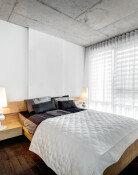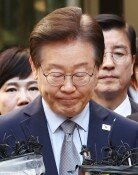Jeonse deposits higher than housing prices
Jeonse deposits higher than housing prices
Posted February. 24, 2015 07:17,
Jeonse is a unique system that exists only in the Korean real estate market. It was first introduced in the Seoul metropolitan area and was later spread to the entire country. It has become common in the housing rental market because tenants can take Jeonse deposits back and landlords can use save or invest the deposits. Foreigners who take a monthly rent as granted say that they can hardly understand Jeonse.
With skyrocketing Jeonse deposits, more houses claim over 90 percent of the housing prices in Jeonse deposit. In certain areas of the Seoul metropolitan area and some other provinces including Ulsan, Jeonse deposits are higher than sales prices. When a Jeonse deposit is over 70 to 80 percent of the sales price, the house is more likely to be auctioned off or some of the deposit is likely to be lost in case the housing price falls sharply. Some people say call it crazy that Jeonse deposits exceed 90 percent of sales prices or even sales prices.
In the low interest rate environment, landlords who find it difficult to invest Jeonse deposits prefer monthly rents or half-Jeonse, instead of Jeonse. Yet, many tenants still want Jeonse so that this drives up Jeonse deposits. The upward trend in Jeonse deposits is here to stay as it is hard to expect a housing price increase like in the past, due to the changes in demographics and the slowdown in economic growth and the housing sales market loses momentum. It was also affected by the increase in demand for relocation as a result of reconstruction projects.
It is even more precarious for the government and politicians to release populist polices to address soaring Jeonse deposits. The governments intervention in the market such as a cap on Jeonse deposits and monthly rents and an extension of a period of housing rental has rather increased Jeonse deposits further or even made the situation worse. The governments policy should be stopped at assisting housing welfare for low-income households and promoting sales transactions. A new equilibrium can be reached if people choose to buy a house due to extremely high Jeonse deposits. Tenants may end up in a dire situation if they complacently sign a contract with Jeonse deposits, which are higher than 90 percent of housing market prices. When the market is hard to predict, one may want to pay part of the Jeonse deposit in monthly rents for security.
Headline News
- Kim Jong Un: Negotiations with U.S. have gone to the limit
- Yoon’s support rating remains at 20% for two weeks in a row
- SEC chair known for cryptocurrency regulations announces resignation
- Medical student scores 398 on CSAT, signaling ‘applications for reach schools’
- Noh Kyung-eun to play up to three more years with SSG







